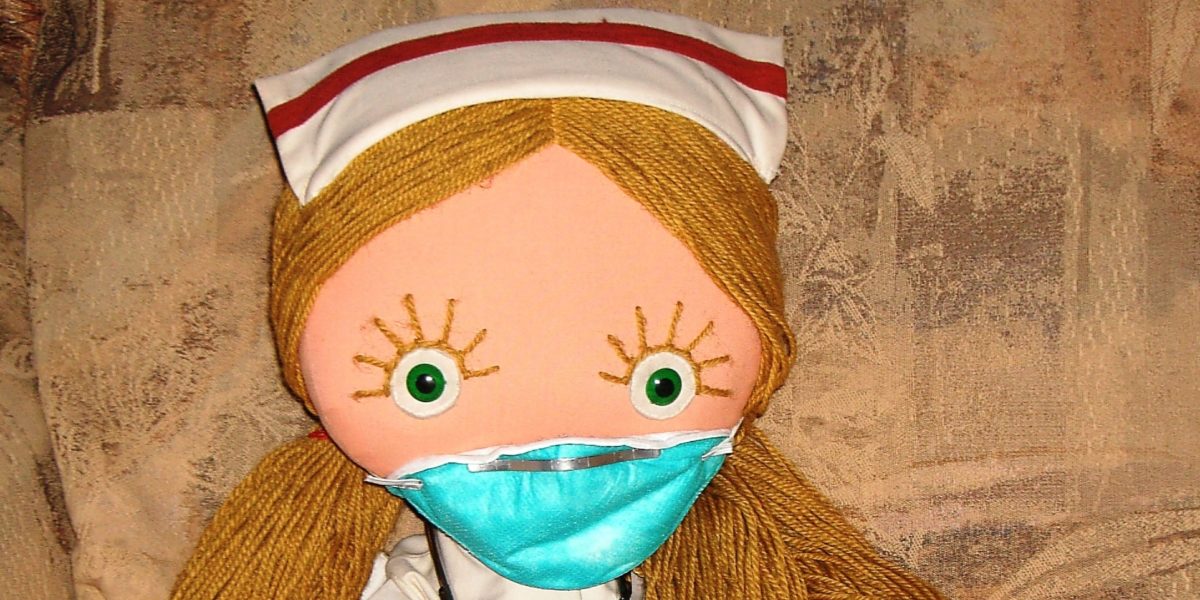This is Nursing Week in Canada, established around the world to honour the May 12 birthday of Florence Nightingale. It’s a week that is usually full of celebrations, special treats at work and educational sessions for nurses.
This year, the third year of Nursing Week in a pandemic, it’s perhaps time to pause the celebrations.
The pandemic has been like an unwanted diagnostic test, a social X-ray highlighting stratums of inequities that pre-existed COVID-19.
This includes all aspects of health care ranging from hospitals and long-term care to home care and public health. All have been chronically under-resourced.
Glowing electronic hearts in windows, the banging of pots at the dinner hour, pizzas and rotis delivered to hospital emergency room staff all demonstrated people’s appreciation of health care workers including nurses.
While the pandemic has highlighted nurses’ valuable work it has also further exposed our societal neglect towards them.
Lack of nurses in the workforce
We do not have enough nurses.
I cannot think of a sector or workplace in Canada where losing a single nursing position is acceptable.
Which is why in my April column I described my upset with the heartless Ontario government decision that led to the termination of 43 nurses in Toronto.
 The nurses had been hired to provide healthcare to unhoused people in shelters, in a COVID recovery facility and at encampments. They were terminated because the Ontario government ended its special pandemic funding, despite the ongoing sixth wave, despite growing COVID-19 outbreaks in shelters and a less than ideal vaccination rate in the homeless population. (Note: at the time of writing ten Toronto shelters have COVID-19 outbreaks)
The nurses had been hired to provide healthcare to unhoused people in shelters, in a COVID recovery facility and at encampments. They were terminated because the Ontario government ended its special pandemic funding, despite the ongoing sixth wave, despite growing COVID-19 outbreaks in shelters and a less than ideal vaccination rate in the homeless population. (Note: at the time of writing ten Toronto shelters have COVID-19 outbreaks)
I was equally disturbed by the apparent acquiescence of the nurses’ employer Inner City Health Associates.
I wrote:
“If a tree falls in the forest, and no one is around to hear it, does it make a sound? This is of course a philosophical question.
If 43 nurses who provide health care to homeless people in a pandemic are terminated, does anyone care? This is a political question.”
A month later, the silence in response to these sweeping job eliminations remains deafening and that silence raises bigger questions.
Nursing and homelessness
I’ve had many sleepless nights over this, and I’ve tried to contemplate why that is.
I have been working as a nurse in the field of homeless healthcare for 35 years. The term street nurse was coined about 33 years ago by a homeless man in downtown Toronto. As I approach retirement, I suppose I’m increasingly both reflective and infuriated at the state of both homelessness and nursing.
The nursing terminations were a red alert for me, a warning that as essential as street nursing is, a huge component of which is necessarily advocacy, we’re not really wanted or tolerated. I learned that a few years ago when I endured four years of unemployment, seemingly blacklisted for my advocacy. This despite being awarded numerous honorary doctorates and the Order of Canada, writing a book, and producing films about homelessness.
Perhaps more significant is what the elimination of these nurse positions says about how governments value the health care needs of people who are experiencing homelessness. These nurses had two weeks to end relationships with people who have numerous health challenges and literally no hope of housing in the near or far future.
I now see the question of the firing of the nurses as a moral one, and one of labour solidarity.
A canary in the mineshaft?
We know health care is threatened with privatization, de-skilling, contracting out and rationing of care. Everyone reading this should follow and support the Canadian Health Coalition that fights these battles on all fronts.
Are these 43 nurses the ‘canary in the mineshaft?’ Is injury to them a hint of what’s to come to the profession?
Street nurses should not be needed 33 years after the term was first coined, or 24 years after homelessness was declared a national disaster. Who is determining the direction of homeless health care and housing in Canada and why isn’t homelessness considered a federal emergency?
I’m also suspicious of the role that overarching American Housing First policies have on the increased pathologizing of homelessness and the predominantly medical and psychiatric responses as opposed to housing and community supports?
In March I wrote that “Housing First {arrival in Canada} coincided with other neoliberal policies that brought us the problems we’re experiencing today. The mantra of those policies is emblematic: cut services, they’re inefficient; cut supports, they’re too expensive; eliminate shelters, they’re a blight on the neighbourhood.”
Nurses, the original providers of homeless health care (let’s be honest – because no one else wanted to do it) are being marginalized and silenced. Some are forbidden to speak to the media, others are forbidden from attending health related advocacy meetings during their work hours.
Themes don’t reflect reality
Nursing Week always has a theme. Last year in my Nursing Week column ‘Nurses see. We must not be silenced’ I compared nursing week themes to recruitment messages. Cheerleading might be a more accurate description. Consider: ‘Promoting Healthy Choices for Healthy Living’ or ‘Nursing: Knowledge and Commitment at Work’, or this year’s Canadian Nurses Association theme: ‘We Answer the Call.’
The themes generally don’t reflect nurses’ reality. The Registered Nurses Association of Ontario at least called it like it is with their theme this year ‘Nursing through Crisis’.
As the pandemic has shown us. The crisis is not new. The stage was set long ago for the diminishing of nursing, the abuse of nurses, the silencing of nurses.
I graduated from Toronto General Hospital School of Nursing 50 years ago. It was an era of white uniforms and stockings, starched nursing caps, camaraderie with colleagues and deference within the hierarchy to the head nurse and (mostly) medical men. Nurses were to be seen and to be silent.
My career path took me on a wild ride to a corporate medical practice on Bay St., then to the community, back to school to get my nursing degree and then for a Masters in Sociology where I focused on the impact of gender, patriarchy, and class within the health care system on nursing.
Then I became a street nurse. That story is longer and is told in my nursing memoir A Knapsack Full of Dreams: Memoirs of a Street Nurse.
Evolution of the profession
I love nursing but we have a history that needs to be turned on its head.
Nursing has gone through successive waves of purposeful professionalization efforts in attempts to elevate itself.
These have included an obsession with developing nursing theory and the concept of nursing diagnoses. Would I really rely on these nursing diagnoses for someone who is homeless: “Inadequate health maintenance” or “Impaired nutrition: less than body requirements r/t homelessness and lack of resources”? No.
Organized nursing has also focused too heavily on developing higher education requirements (some would say exclusionary) including a baccalaureate as an entry point to practice and the development of nurse practitioner programs.
Within the nursing profession, efforts to facilitate internationally educated nurses’ (IENs) transition to practice have been less than robust. (Note, this is one area where the pandemic has provided some necessary acceleration.)
Fortunately, nursing students routinely question their educational programs that do not include content on colonialism, homelessness and poverty, activism, advocacy, economics, or politics. They are creating social justice committees, organizing their own conferences and eagerly signing up for extra-curricular events such as the Jack Layton leadership school at Toronto Metropolitan University (formerly Ryerson University, where I helped launch the Layton school).
Historically, nursing has only been elevated within society during times of crisis such as war or a physician shortage.
Seemingly, a global pandemic has not yet led to the same positive outcome.
It’s not too late.




